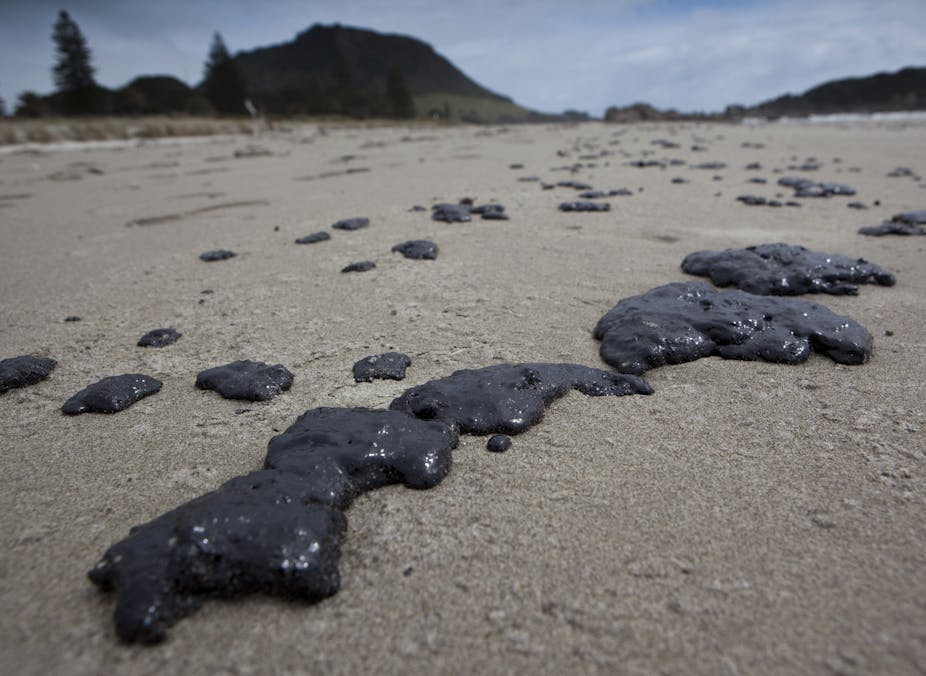Experts have warned of damage to marine ecosystems after the cargo ship Rena struck a New Zealand reef and leaked around 50 tonnes of oil into the Bay of Plenty.
New Zealand maritime authorities said on Monday that “fist-sized patties” of oil have washed up on New Zealand beaches following the spill.
“A public health warning has been issued. No shellfish or fin fish should be eaten from waters with visible oil contamination,” a statement posted on the Maritime New Zealand website said.

Nine birds, including seven little blue penguins and two shags, had been rescued by wildlife response teams and reports of oil-slicked seals are being investigated, the statement said.

Professor Ravi Naidu, Managing director of the Co-operative Research Centre For Contamination Assessment And Remediation of The Environment, in South Australia, said the oil will not disappear quickly.
“This spill could impact on the sensitive aquatic environment and life cycle of the marine ecosystem,” he said.
“There are volatile hydrocarbons in the oil which will disperse but the oil which is not removed will continue to have an effect. There will be some natural remediation by microbes in the coastal environment, but it may be found that these are not as active as they are in warmer tropical waters.”
Marine ecologist Associate Professor Mark Costello, at Auckland University’s Leigh Marine Laboratory, said that some microbes may be able to break down oil depending on the type of oil and environmental factors.
“Dispersants, like a lot of detergents, will kill animals and plants as well. Some of the new ones may be safer, but I don’t know how safe they are,” he said.
“You do get natural oil and gas leaks in various parts of the world. The marine microbes which break down oil slicks seem to be pretty cosmopolitan and they break down lumps of oil in other places.”
“I know people have sprayed nutrients such as nitrogen on beaches to try and speed up the growth of bacteria that would help degrade the oil – but as far as I know this has been experimental and it’s not yet clear whether it has any effect in degrading the oil faster. The nutrients could have their own knock-on effect”.

